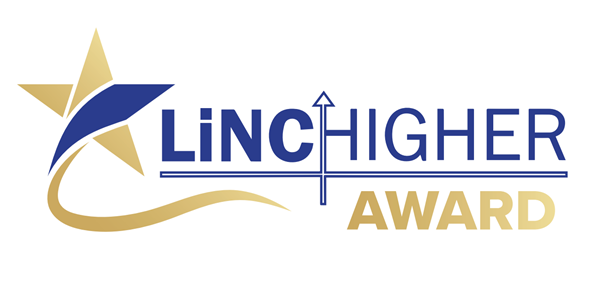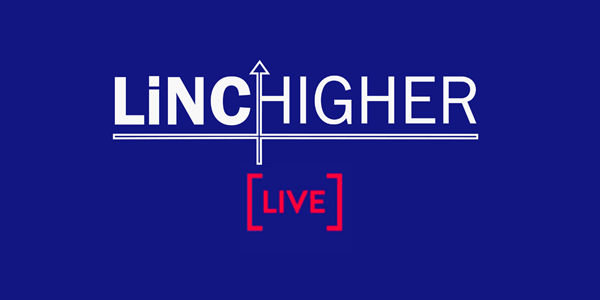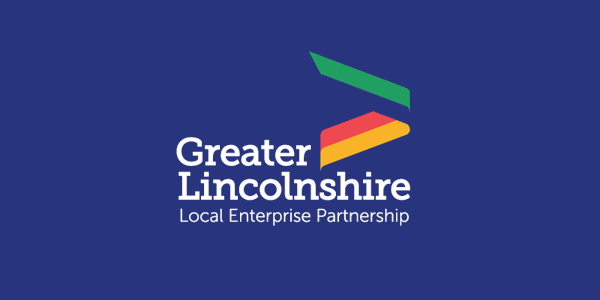What can I study at Higher Education?
There are lots of different types of Higher Education level courses you can study after Year 13 or 18 years of age.
A degree course at university and college starts at Level 4 and progresses to Level 6, but there are also Foundation Degrees, Higher and Degree Apprenticeships, HNCs and HNDs, Honours Degrees, Honours Degrees with a placement year, etc. Check out our Pathways map to see the different levels and the relating qualification.
Honours Degree Courses
An Honours degree is a course of study leading to a qualification such as a Bachelor of Arts (BA), Bachelor of Science (BSc), or Bachelor of Law (LLB). This typically takes three or four years to complete full time (normally four years if you're doing a placement year, which includes a year in industry or abroad or a Foundation year with a three year degree).
You can study for a full or part-time Honours Degree at a university or college, or more flexibly in your own time with the Open University, building up credits through a series of shorter courses.
There is also the option of studying an accelerated two-year degree course. Although there is a limited number available currently, it is likely that more will become available. Some universities also run blended degrees, with a mix of university campus led learning, as well as online study. The benefits of choosing to study over 2 years, rather than 3 years, is that you will save money in terms of tuition fees and living costs, although you will probably be expected to work through the holidays.
You can also study through Open University distance learning courses.
For Full and Part time Honours degrees, whether studying at university or college, you will need to complete a UCAS Application. Check out the 'How to apply section'.
Foundation Degrees
Foundation degrees focus on a particular job or profession, and are taught in universities and colleges. They are ideal if you’re unsure about taking a full degree or if you want to study while you work. Whether you’re working in or towards the role now, you can gain professional and technical skills to further your career – within a shorter time frame than a full degree.
- They usually take two years full-time to complete, or longer for part-time students.
- Normally you can continue for a further year to gain a full honours degree, which is useful if you decide to go for a full degree after all.
Costs for foundation degrees vary, but you may be able to get financial support – especially if you’re studying while working.
You’ll also still be entitled to the same student finance as other Higher Education students.
- You will need to contact the university or college to check costs and whether you can get funding.
- If you’re in employment now, the company might be able to support you too.
Full-time foundation degrees: if the university or college is a UCAS course provider you'll need to complete a UCAS Application.
Part-time foundation degrees: apply directly to the university or college offering the course.
Higher and Degree Apprenticeships
Higher Apprenticeships are at Level 4 or above and when completed are equivalent to a HNC, a Foundation Degree or the first year of a degree.
There are a wide range of courses provided by this route including Police Constable, Nurse Associate and Chartered. They are developed by employers, colleges, universities, and professional bodies working in partnership.
Higher Apprenticeships may be general such as in 'management' or in a very specific area. For example, instead of IT - there will be a specific apprenticeship in cyber security.
Degree apprenticeships were introduced in 2015, and are part of what is known as Higher Apprenticeships - which includes all apprenticeships between Level 4 and Level 7. These enable you to gain a higher qualification such as a foundation degree, Bachelor’s degree or a Master’s degree whilst you are working.
Today, apprenticeships are available in every industry sector and provide exciting, high quality opportunities in all kinds of careers.
As these apprenticeships are new, they are sometimes not available either where you live or in the sector you are looking for. They are also highly competitive so it is a good idea to get your university application in at the same time as you are looking for an apprenticeship, so you have a Plan A and a Plan B!
Degree Apprenticeships
A degree apprenticeship, which is taught at college and university, allows students to gain a degree or even a masters degree, at Level 6 and 7, while being employed and trained at the same time.
What are the benefits of a Higher/ Degree Apprenticeship?
- No tuition fees as the costs are paid by the employer and the government - this could save you over £30,000
- Earn while you learn
- Get time to study for a nationally recognised degree qualification
- Get paid holidays and other benefits of being an employee
- If you’re new to the world of work, you can develop your transferable skills in team work and time management.
You can find more information about Higher & Degree Apprentices by visiting https://www.instituteforapprenticeships.org/apprentices/
To apply, you need to submit your CV and any other information requested, directly to the recruiter.
HND/HNCs
Higher National Diplomas and Higher National Certificates are work-related courses provided by a number of colleges. Generally speaking an HND is the equivalent to two years at university but they can often be studied part time over four years. HNCs and HNDs focus on 'learning by doing' and develop skills that you can use in a particular job. Many students who undertake these courses are already employed in the industry and the qualification helps them to further their career or update their knowledge. They are highly valued by employers and can also count towards membership of professional bodies. Entry requirements for a HNC/D vary and relevant professional or technical experience is often taken into account. Progression from an HNC/D can include further study at university which can lead to an degree, or entry to and progression within a related industry.
HNDs are offered in vocational areas such as:
- Arts, Media and Publishing
- Business, Administration and Law
- Construction, Planning and the Built Environment
- Engineering and Manufacturing Technologies
- Information and Communication Technology
- Leisure, Travel and Tourism
To apply, contact the college or training provider directly.
Foundation Year (different from Foundation Degrees)
A Foundation Year is an extra year of study at the start of a university course. It allows students who don't meet the entry requirements to fill in the gaps and go on to study a full degree.
There are a variety of situations in which you might be able to study a foundation year:
- You might have taken A-Levels that don’t match the entry requirements for the degree you want to study.
- You might not quite have made the grades you need to go straight on to the standard degree course. Offers are often lower for courses with foundation years.
- You might have a kind of qualification that isn't accepted for the course you want to study or an unrecognized qualification from another country.
Applications for degrees with Foundation Years are made directly to the institutions, whether universities or colleges, and not through UCAS.
Art Foundation Courses
Many art and design degree courses require applicants to have taken a one-year art foundation course to help students to explore a range of art and design experiences such as sculpture or fine art which they may not have been able to explore in school. It also gives them time to build their art portfolio. Applications for these courses are made directly to the college and most students tend to stay local to home rather than move away.
If you want to study for an art foundation diploma at an FE college or university, you’ll need to apply directly to the institution.
Although this process doesn’t involve the UCAS application service, it usually contains many of the same aspects. You’re likely to need a personal statement and at least one supporting reference.
Access to Higher Education Diploma
The Access to Higher Education (HE) Diploma prepares students for Higher Education level study, and are usually studied at college.
An Access to HE Diploma is for people who have been out of education for some time and for those who left school with too few qualifications to be able to go straight to university.
Access to HE courses provide a good foundation in the knowledge and skills required for studying at university level, so that students are confident and well prepared when they go on to Higher Education after the Access to HE course.
Some courses have a specific subject focus, such as Access to Law or Nursing or Business Studies. Others provide a preparation across a wider range of subjects, such as Access to HE Diploma in Social Studies or Combined Sciences. Diplomas with more general titles often have a range of options available, so students on the same course are able to choose different options to suit their individual interests, plans for further study, or career ambitions.
Most Access to HE Diplomas can be completed in a year and there are courses offered at Further Education colleges in your local area. Some Access to HE courses are offered in the evenings or by distance learning.
You should apply directly to the institution you are interested in studying at.
Postgraduate courses
Postgraduate qualifications (Level 7 and above) are generally accessed via university and require applicants to have undertaken some previous study or experience in the chosen field, usually at undergraduate level.
Postgraduate courses can be full or part-time and lead to, for example, a Post Graduate Diploma, Masters, or Doctorate.
What does studying Higher Education at University or College offer, and should I go?
Studying university or college is a big commitment, in terms of both time and money, but by getting a degree you will be making a big investment in your future. The skills you can gain from a Higher Education course can give you an edge in the job market and help you progress in your career. Employers are often looking for people with graduate level skills - irrespective of the degree subject studied. It will increase your chances of getting a good job and improve your earning potential. In addition, for many young people it is also their first taste of independence, and an exciting opportunity to try new activities and meet new friends.
The benefits of studying Higher Education at University or College
It opens up a wide range of career options.
- A degree is essential for some professions, for example if you want to become a doctor, physiotherapist or architect.
- Many other jobs will only recruit people with a degree, although they may not require a particular subject.
- People with higher level skills are less likely to be unemployed, partly because their higher-level skills allow them to do a range of jobs. And with new jobs being developed all the time, a higher level qualification will put you in a stronger position. By 2024, around 54% of people in employment are expected to be qualified to at least Level 4.
You are likely to earn more.
- Graduates earn on average more over their lifetime than people without a degree.
You will become more career-ready
- Universities and colleges offer careers advice and many provide high-quality work experience opportunities.
- You may have the opportunity to study overseas, which can be appealing to recruiters.
- Even if you don’t have a career in mind, university life in particular will help you to become more independent and develop personal and transferable skills such as teamwork, managing their time, meeting deadlines, communication skills, research skills and critical thinking – all crucial for the workplace.
You will develop life long attributes with better life changes.
- You will also meet people from different places and backgrounds, building a network of contacts that will be valuable during your career.
- Graduates enjoy better health outcomes by being less likely to smoke, more likely to exercise, and less prone to depression.
- Graduates are more influential in the community by being active citizens who are more likely to vote and participate in voluntary activities.
- Graduates show positive attitudes towards diversity and equal opportunities, such as on race and gender equality issues.
- Graduates, with their higher levels of skill, are a source of wider innovation and economic growth
You will have a great time!
- University can be a life-changing experience; you'll develop as a person, grow in confidence and have the opportunity to make new friends and try new things.
Read Bethany, from BGUs, thoughts on what other skills you gain from University
Financial benefits of Higher Education
There are a wide range of studies and reviews completed each year, but on average graduates in the workforce earn £10,000 more a year compared to non-graduates.
Employers pay most for skills and qualifications that are specialised and are particularly important to their business or are in short supply.
In 2017, graduates and postgraduates had higher employment rates, with a greater proportion in high-skilled employment.
In particular the financial benefits for women having a degree are good, indicating that women benefit more from a degree than their male counterparts. Median earnings of English women around 10 years after graduation were just over three times those of non-graduates, compared to the median earnings of male graduates, which were around twice those of men without a degree.
Remember, pursuing Higher Education isn’t just about the financial return, but also about giving you greater career choices, employability and job security as well as better life skills.
Why study HE at College?
UK colleges offer all the subject areas you’d expect from a university, and many colleges offer full honours degrees. UK colleges are also known for more practical, vocational courses, such as Higher National Diplomas (HNDs) and foundation degrees, most of which are run in partnership with a university, and often allow students to continue to a full degree through a 'top-up' course.
UK colleges provide a very high level of teaching and learning support for students on higher education programmes, although some colleges don’t offer student accommodation like universities do with halls of residence. With this in mind, it’s important you research your accommodation options before you add a college-based course choice to your application.
What are the benefits?
There are many benefits to studying your course at a UK college, including:
- lower tuition fees compared to University
- smaller class sizes
- location – you can choose to stay close to home (reducing any living expenses)
- flexible study options, including part-time
- progression programmes through to full degree courses
- more class contact hours and individual study support
Who studies HE in a college setting?
- Around 10% of all undergraduate Higher Education is delivered in Further Education (FE) colleges, with around 187,000 students studying HE at a college in the UK.
- Colleges have more part-time provision, more students in work, and more mature students than in universities.
- Colleges offer a wide range of subjects, particularly vocational courses. They deliver a higher proportion of the following subjects than universities:
- business, admin, and law
- education and training
- arts, media, and publishing
- manufacturing technology/construction
- Almost half of all undergraduates studying at a UK college are over 25 years old. A high proportion are also studying part-time – studying for their HE qualification alongside other responsibilities, such as working and family commitments.
Good to know...
This option might really suit some students - for example, those who want to stay closer to home because it might be cheaper or because they have family or personal commitments. Some might prefer to study in a smaller environment and be particularly interested in a shorter course related to a vocational area (with an option to top up to a full Honours Degree later).
What are the benefits?
FE colleges tend to offer HE qualifications such as HNDs, HNCs or Foundation Degrees which relate directly to certain jobs or industries and often include practical work experience as part of the course. These courses tend to take two years full time with the option of topping up to a full degree in the third year.
A lot of HE courses in FE colleges can be taken on a part-time basis meaning they can fit around existing commitments like part-time work, child care, etc. These courses tend to have lower fees too: where universities charge up to £9250 per year, many Foundation Degree courses at FE colleges cost from £6000.
Whilst this does mean that your student debt is smaller, remember that your repayments are not based on what you have borrowed, but on what you are earning. In addition, if you want to top up to a degree, you will have to pay for this.
How does University & HE at College differ from School/College?
More academic independence.
At university, or if you're studying a Higher Education qualification at college, you will be expected to take responsibility for your own education. That means, for example, knowing when and where your lectures are and planning your own workload to meet essay and assessment deadlines. This can be a big leap for some students, but universities provide plenty of support while you get used to this new way of working.
Different learning methods.
You will be used to a rigid timetable of lessons and homework. As a Higher Education student, the amount of structured learning time you will have each week varies depending on the course. Some degrees, such as English and History, have around 12 to 15 hours of timetabled sessions per week, but students are expected to spend the rest of the time reading and doing library research. Other subjects, such as sciences, are fully timetabled with just a few hours’ free time each week.
Courses are made up of modules or units, each covering a specific topic, and are taught through a combination of:
- Lectures – where an academic presents information to a large group.
- Seminars – interactive sessions facilitated by a tutor, in which a smaller group of students explores a subject.
- Tutorials – discussions with a tutor, either one-to-one or with a handful of other students.
- Independent study – reading, researching and working on assignments.
Depending on the degree you choose, you may also have:
- Practicals or workshops – for example conducting experiments in a laboratory, creating artwork in a studio, or learning to use statistics software in a computer suite.
- Fieldwork – where you learn by visiting and studying a particular location.
- Placements – where you spend time in a company to learn workplace skills.
Many courses involve group study, where a number of students work on projects together, and experiential learning – learning by doing practical tasks and reflecting on the experience.
More freedom in general.
For many young people, going to higher education at University or College means leaving home. This in turn means enjoying new freedoms and coping with new responsibilities. You will have to sort out accommodation, shop and cook for yourself, and manage your own finances. You will also have to balance your academic work with the demands of a social life and the many activities on offer.
What grades do I need to study HE at University or College?
It’s important to check entry requirements carefully. These can be found via the Institutions website or UCAS.
- Do you have the required GCSEs and are your A Levels or equivalent subjects accepted on the types of courses you are interested in?
- You will need to make realistic choices based on your predicted grades.
- Some universities and colleges will have higher entry requirements than others. Think about a backup choice with lower requirements in case you don’t get your predicted grades.
- The application process may also involve an interview, audition or admissions test, or a combination of these
How to choose a course
With more than 50,000 degree courses on offer across UK universities and colleges, there are plenty for you to choose from. You might need some support to narrow down your options. You will also need to think about where you would like to study. Open days are a good way of deciding whether a particular university or college is right for you.
Use the UCAS subject guide (www.ucas.com/ucas/subject-guide-list) for more information about courses, what they involve and where they can lead.
Choosing a course
Single or combined honours? If you can’t decide between two subject areas, a combined or joint honours course could be the answer. This offers the chance to study two subjects rather than one, taking roughly the same number of modules in each. As combined honours are usually only available via a university, and not a college, some universities also offer a major/minor degree option, which is similar but with a smaller proportion of modules in the minor subject.
Studying a combination of subjects could mean you won't have to drop a subject you enjoy, and can provide a broader education. However, finding the right combination may mean narrowing down your choice of universities.
Checking course details
Degree courses are made up of individual modules or units, which cover specific topics within the subject area. Most courses include compulsory modules, which students must take, and some optional modules that enable students to choose topics of interest. Remember, you can study degree qualifications at college, however they usually provide a much smaller range of degree level courses. Check out 'The Benefits of studying HE at College' section to learn more.
Make sure you check the qualifications needed for your chosen job as some want a specific degree at entry, such as architecture, dentistry, vet, etc.
- Take a look at the modules in detail, as they will vary across different university courses. While lots of universities offer a History degree, for example, the topics they cover in their modules might be very different.
- Find out how the modules are taught and assessed too, to check the course will suit your preferred approach to learning.
- Does the course offer the amount of flexibility you would like in terms of choosing optional modules? Can you tailor the course to some extent to match your career goals or academic interests?
Other things to check include:
- Contact time (time spent in lectures, seminars and tutorials) – do you feel the course offers enough contact time, and are you happy with the balance between timetabled learning sessions and independent study time?
- Study abroad – some degrees include a year abroad as part of the course structure; on other courses you may be able to take part in an exchange programme and spend a semester or term studying at a partner university overseas.
- Industry placements – some degrees include a period of time working in a relevant business, which can offer students valuable workplace experience.
- Accreditation – this can be an advantage for certain careers, such as accounting, marketing, chartered surveying or healthcare professions. Accredited courses can count towards professional qualifications or registration with a professional body.
Ideas to help you choose a course
Ask yourself these questions
- What do you enjoy studying at school or college?
- Would you like to study a familiar subject or a completely new subject?
- What do you like to do in your spare time? Is there a course that can match your interests?
- Check out the Course Finder, to see some of the Higher Education courses available locally.
- Check out our Careers Builder to get a better understanding to the type of qualifications and subjects you may need for specific career paths.
Open Days & UCAS Fairs
University & College Open Days
Once you have narrowed down your options, open days are the best way to really get a feel for the universities & colleges on your list before applying. These days it’s common for parents or carers to go with their children, although some young people choose to go on their own or with friends. Speak to your parents/carers about whether they want to go, what you might need from them whilst there and set some group rules.
Having your parents/carers or other close family come along can be reassuring to them, they will be worrying about you leaving and where you might be living and studying.
What does an open day involve?
Most open days will include tours of the campus and local area, talks about specific subject areas and about the services and facilities on offer to all students, taster sessions, and the chance to chat with staff and current students. There may also be talks especially for parents or carers, so you can get rid of them for a while whilst you explore!
Dates and registering
You can search www.ucas.com/open-days or our events calendar for open day dates, and you’ll find more information about specific universities and college open days on their websites. Most universities and colleges ask visitors to register for a place so make sure you do this, either yourself or through your school or college who may also be organising trips to local institutions during your final year.
Good to know...
UCAS Fairs
UCAS Fairs run at different times through out the year, all across the country. They are a great way to find out more information about lots of Higher Education insitutions, speak to existing students and staff, and get a feel for the places you might like to organise a Open Day visit. To check out when Fairs take place visit the UCAS website.
Accommodation Options
With your place at university or college secured, you will need to decide what sort of accommodation you would like to live in.
Good to know...
University or College Halls of Residence
- This is the preferred option for most first-year students.
- Most halls comprise a group of study bedrooms with a communal lounge/kitchen area, but they vary in size and layout. It’s a good idea for you to look around some halls during open days to get a feel for what you might prefer, and the differences in cost.
- There may be a choice of room type, for example rooms with a shared bathroom or en-suite rooms. Costs will vary accordingly.
- Bills are usually included and halls may offer a package that includes some meals, so they are a good first step towards living independently.
- Halls may have a warden or supervisor to keep an eye on students’ welfare and conduct.
- Some universities and colleges will guarantee a place in halls for new students who meet their terms and conditions, but this is not always the case, so it’s a good idea for you to apply as early as you can.
- Some halls of residence offer term-time only contracts; this is often cheaper but, depending on the university, may mean that students have to move out at Christmas and/or Easter.
- The cheapest option is likely to be a shared room with shared bathroom, self-catered and term-time only
Private halls of residence
- These are similar to university halls but owned and managed by a private company.
- You should check the amenities and communal facilities on offer, and what is included in the rent.
Private Rented Accommodation
- If you don't manage to get a place in halls, this is a common alternative.
- This is a good choice for students who are ready for a bit more independence.
- Many students move into a privately rented house or flat for their second and third years, sometimes sharing with friends they have met in halls or on their course.
- Universities often have their own accommodation agency that can help students to find approved private rented accommodation. Some colleges will have an accommodation department which can provide support and advice.
- You will probably have to sign a tenancy agreement with a landlord; you should make sure you understand the terms of the agreement. The university or students’ union will probably have a housing advice service that can help you if you're unsure.
- Students in private rented accommodation are usually responsible for paying bills on top of rent, so you should check what is and isn’t included in the rent.
- You may have to pay rent over the summer even if you're not living there; if so, you will need to budget accordingly.
Read Georgina's advice about Private Accomodation
Living at home
- If you are studying locally you may want to stay at home.
- If you and your parent/carer are happy with this, it can save you a lot of money. However, you and your parents might want to set out some ground rules to ensure things remain harmonious.
- Living at home may make it harder to get stuck into student life, so you may need to make extra efforts to socialise and meet people.
Good to know...
Is there funding support available?
The main form of funding is via your Student Loan which covers your fees and maintenance loan. However there is other financial support provided by Universities, Colleges and the Government.
Depending on your circumstances, you may be able to access extra financial support from your university, such as:
- Scholarships – often these take the form of a lump sum and are offered to academically talented students.
- Bursaries (cash grants that don’t have to be repaid) and fee waivers (reduced fees) – these may be offered to students from lower-income households.
- Hardship funds – assistance for students who are experiencing financial difficulties, usually in an emergency or exceptional circumstances.
Good to know...
Disabled Students’ Allowance
The Disabled Students’ Allowance is designed to cover any extra costs you may have due to a disability, long term illness, mental health problem, or specific learning difficulty. This could include extra costs such as having to pay for specialist equipment such as computers or travel costs.
For eligibility criteria and more details, visit www.gov.uk/disabled-students-allowances-dsas
Care Leavers
If you are from a Care background you are eligible for additional financial support. Check out our dedicated section for care leavers.
Part-time and holiday jobs
Many students choose to earn some extra money by working during term time, vacations, or both. This can also give them useful experience and help to enhance their CV. However, it’s important that they leave plenty of time for their studies.
- Many universities and colleges have an employment service that can help students find part-time work on or off campus.
- A temping agency may be able to find them short term jobs during holidays.
- Or they could ask around in local shops, bars or restaurants
Teacher Information
Most universities offer various forms of financial support, particularly (though not exclusively) to students from lower income families. The most common examples are bursaries and scholarships to help with some or all of a student's tuition fees or living costs
Your child's eligibility for bursaries and scholarships can also be based on academic ability, extracurricular interests and even individual circumstances (eg a disability). And the best thing about these? Unlike the other loans, these don’t need to be paid back!
Student Finance: What is it & how do I apply?
Paying for University or College
The cost of Higher Education can be concerning for students and parents in thinking that you can't afford to go to university or college. But don't dismiss the idea because of this. Find out the facts and you will see that it is more affordable than you might think, and is a real investment in you and your future.
The following section aims to give you the information you need about student fees and loans, and breaks down some of the myths about Higher Education finances.
The good news is that student loan repayments are based on what graduates can afford to pay rather than the amount they borrow, and students don’t have to pay anything back until they have finished their degree and are earning over a certain amount.
Tuition Fees
This is the cost of the course itself – for example teaching time and library/computer facilities.
- Students have to pay their own fees, but they can get a loan to cover the cost.
- Universities can charge up to £9,250 per year (frozen at this cost until 2025)
This loan is not means-tested – which means the amount you receive doesn’t depend on your household income.
Maintenance Loan
- You will also need to pay for things like accommodation, food, transport and socialising.
- You can apply for a maintenance loan to help towards these costs.
- The amount you can borrow will depend on various factors, including where you will be studying and your household income.
Who provides student loans?
Student loans are provided by the Student Loans Company (SLC). SLC is a non-profit making, government-owned organisation. For students living in England, applications for a student loan are made through Student Finance England.
The most current and up to date advice can be found on the SLC website:
You can read more about the changes to 2023/24 loans here
Repaying your student loan
For both types of loan, you will only have to start making repayments:
- After you have finished your degree.
- When you are earning a salary over a certain amount. The threshold for repayments on Plan 2 loans change on the 6th April every year. See the student finance website for accurate details.
The tuition fee and maintenance loans are linked to keep repayments simple, and are paid back directly from graduates’ salaries.
Your loan repayments will be automatically deducted from your earnings in the same way as income tax.
There’s more information about repaying student loans on the Student Loans Company website, www.slc.co.uk/repayment
Student Loan Interest
Whilst you are still studying, the interest on your loan will be inflation plus 3%. After you have finished the course, you will pay a rate of interest based on the UK Retail Price Index (RPI) and your current level of income.
Find Out more
GOV.UK www.gov.uk/repaying-your-student-loan/what-you-pay
Student Loans Company http://media.slc.co.uk/repayment/qsg
How do I apply for a student loan?
You can apply for your tuition fee and maintenance loans online at www.gov.uk/student-finance. You should do this as early as possible, as it can take up to six weeks to process your application. You don’t need to wait to receive offers from universities before applying. For more guidance and application deadlines visit www.gov.uk/apply-for-student-finance
Most of the process is done online, however you may need to send proof of identity through the post, and will have to print, sign and return a declaration form. You will then receive a letter confirming how much you can borrow.
Once you have registered at university, the tuition fee will be paid straight to the university. The maintenance loan will be paid into your bank account at the start of each term.
When parent/carers need to be involved
If you want to apply for the maximum amount of maintenance loan, you will need to ask your parent/carer for information about your household’s taxable income, in order to include it in your student loan application.
Once your forms have been submitted, your parent/carer may be asked to provide their proof of earnings – for example their P60 or Self-Assessment tax return, and their National Insurance number. They will also be asked for evidence of any taxable state benefits, pensions or any investment income. This is just part of the checking process so there’s no need for you or your parent/carer to worry.
HM Revenue and Customs (HMRC) will then check the information that has been submitted against their records.
Student Finance England will write to you when all of your information has been confirmed.
For children coming from care, please read our guide on how to apply for your student finance.
If you have no contact with your parents/guardians, you can apply for student finance as an estranged student.
Student Finance England - Estranged
Find out more about the process and what you need to provide
GOV.UK www.gov.uk/support-child-or-partnersstudent-finance-application
Which? University https://university.which.co.uk/advice/advicefor-parents/expert-advice-for-parentsstudent-finance
You can also use a Student Loan Calculator.
Save the Student - Useful Tools
Good to know...
Teacher Information
Notice for parents
It’s not recommended that you take out a personal loan to help your child; this is almost always a more expensive option than your son or daughter taking out a student loan. Interest rates on student loans are still very low in comparison with other loans on the market.
Plus, student loans expire after 30 years, and 60% of students will never pay all of this back.
When your child is applying to Student Finance, you don’t have to submit information about your household income. All students are eligible for a basic rate of maintenance support, regardless of household income; this is based on where students live and study. However, if you do submit this information and you're classed as a low income household, your child will probably be eligible for more (which can make a big difference).
If your household income changes while your child is applying for student finance or once they get to university, it's best to let Student Finance England know so they can reassess you if necessary. If your household income has dropped by 15% or more since the last tax year you can complete a Current Year Income (CYI) assessment form. By completing this form Student Finance England can reassess a students’ application and could mean they are eligible for more funding.
Finally, are you responsible for your child's loan? NO. Once your child graduates and is earning above the threshold, their loan will be automatically collected through PAYE (a bit like income tax). No cheques and no direct debits needed, meaning it’s therefore virtually impossible for them to fall behind on repayments.
How do I apply?
Make sure to read about the different options available to you in Higher Education, as some qualifications have different ways of applying.
Good to know...
Before you start, follow these general steps when applying for a course:
- Find out what the application process involves by checking on the institution's website (i.e. through UCAS or direct) - it will be different depending on whether you are applying for full-time, part-time, etc.
- Find out the deadlines for each course you want to apply to, and give yourself plenty of time to complete your application
- Check what the entry requirements are - these can be found on the UCAS website, or on the institutions website - do they accept your qualifications and will you meet the grades they want? If you are not sure you will need to contact the institutions admissions department by phone or email to check.
- Get ready to market yourself, your skills and experiences! Part of the application process, via UCAS and direct, will require you to write a personal statement telling the institution why you want to study that course. You will need to think about your skills and experiences as well as your academic qualifications. There is lots of help on the internet to get you started with your personal statement - student room, Which uni, UCAS, including this great UCAS video
- Many universities offer help with personal statements - check out what is available on their websites. Tempting as it might be, do not copy – it’s your personal statement and UCAS has a very sophisticated system to catch out those who have copied.
- Think about who might be the best person to write your reference & find out about the UCAS process in your school / college
- Your school or college are there to support you with your application, so make sure that you attend all the relevant lessons that will tell you what you need to do - and ask if you are unsure. Some of you may be planning to apply once you have left school or college, perhaps during a gap year, so it is worth checking with your school or college to find out what support they can give you once you have left.
UCAS
UCAS stands for University and Colleges Admissions Service
Applications to study full-time courses at universities, colleges and conservatoires in the UK are processed through UCAS. You can apply for up to five courses in total.
For full details of the UCAS application process visit www.ucas.com
For teachers/advisors the resource library contains many UCAS Application Advisor Guides & Flow Charts.
The UCAS website provides:
- A wide range of information and support that will help your research and decision making before, during and after your application.
- A tool that enables you to 'Track' the progress of your applications on-line, as well as managing decisions and your offers.
UCAS offers on-screen help and advice as you work your way through 'Apply'. You can also watch the UCAS video guide to using Apply.
If you need help or advice on your application, you should contact your careers adviser or call the UCAS Customer Service Unit on 0371 468 0468. You will need your personal ID number so they can find your record.
Good to know...
When to apply
You should apply in good time to meet the deadlines, which are:
- 15 October – for all courses at the universities of Oxford and Cambridge, or for most courses in medicine, veterinary medicine/science, and dentistry at all universities. You will be able to apply for courses with different deadlines later, as long as you are within the limit of five courses overall.
- 15 January – for most other degree courses.
- 24 March – for some art and design courses (others have a mid-January deadline so be sure you check carefully).
Universities don’t wait for the January deadline to start offering places – students can receive offers late in the autumn term – so it’s good to view 15 January as a deadline rather than a target.
Completing the online form
UCAS’s undergraduate application system is called 'Apply' and the whole process is done online.
- You will need to register on the UCAS website by giving some basic details and setting some security questions; you’ll be given a username and will need to set a password.
- Your school/college may give you a ‘buzzword’ to enter in the form; this links your application to your school/college.
After registering, there are seven more sections to complete:
- Personal details.
- Additional information, including equality monitoring questions, and details of any summer schools or taster courses you have attended in preparation for Higher Education.
- Student finance – you can sign up for an alert to let you know when you can apply for student finance.
- Choices – your chosen courses/universities
- Education – details of schools attended since the age of 11, exams taken, results, and any exams still to be taken.
- Personal statement – your opportunity to tell universities about your strengths and why you should be offered a place.
- Employment – basic details about part-time jobs.
There is also a section at the end for a reference, which is usually completed by your teacher. If you are applying independently, you can ask an employer or trainer to be you referee.
There is an application fee, which may be payable direct to UCAS or via your school/college. If you're not sure which, make sure to check with a teacher. The application fee is currently £18 if you are applying to just one course, or £24 for multiple courses and for late applications sent after the 30th June.
Good to know...
Find out more about writing an effective personal statement
Which? University www.which.co.uk/pstips
Good to know...
Teacher Information
Supporting your child: Drafting the personal statement
The personal statement is your child’s opportunity to stand out from the crowd by talking about their skills, experience and ambitions. It’s a crucial part of the UCAS application, but it’s also the section many young people find most difficult. Your young learner will probably be getting help from their school or college through group application work, or one on one support with careers advisors, local universities or other specialists. It's worth asking their school what support and provisions are in place to support them.
It’s worth doing some research yourself so that you can offer the best possible guidance. Have a look at the resources on the UCAS website. These include videos and a personal statement tool that helps your child think about what to include and how to structure their statement within the given word limit.
You can offer practical help by encouraging your child to write some notes about:
- What makes them interesting or different (in a positive way).
- Why they chose the subject, and why they are excited about the course.
- Work experience and other activities, and the skills and qualities they demonstrate.
- How these skills and qualities could be useful on the course – for example project management, meeting deadlines or communication. If they’re stuck for ideas, they could ask you, their teachers and their friends for feedback. Once they’ve gathered their thoughts, they will need to create a focused and structured personal statement.
- Offer to look through drafts and encourage them to use plain, cliché-free English.
- Check their spelling and grammar, or make sure they ask someone else to.
I've missed the UCAS deadline!
First of all you have to work out which deadline! There are different ones and you need to check with UCAS to see which one is relevant to you.
There is a deadline for:
- Courses at Oxford and Cambridge;
- Medicine, veterinary medicine/science and dentistry courses;
- For the conservatoires;
- Some art and design courses have different deadlines;
- A small number of courses, such as nursing, may have two course starts each year.
If you think you have missed your deadline, it is still possible to apply to university or college, but you will need to check with the institutions you are interested in and the specific courses to see if they accept late applications. You may be lucky, but it really does depend where and what you are applying for.
If you apply late, some of the more competitive courses may already have made their offers and it might mean that you would have a greater choice if you apply the following year. Would it be better for you to take time out? You could fill your year with relevant work experience or other activities such as voluntary work or travelling and give yourself the opportunity to develop your skills.
What happens next?
Once your form is submitted to UCAS:
- UCAS processes the information, which can take up to 48 hours.
- You will receive a welcome email, explaining how to use 'Track' – the online system that allows you to follow the progress of your application.
- Your application will be sent to your chosen institutions.
After you have applied: What next?
Once your form is submitted to UCAS:
- UCAS processes the information, which can take up to 48 hours.
- You will receive a welcome email, explaining how to use Track – the online system that allows you to follow the progress of your application.
- Your application will be sent to your chosen institutions.
You may be invited for an interview or audition, or may be required to do an admissions test.
Prospects
Which? University
https://university.which.co.uk/advice/ucasapplication/university-interviews-how-toprepare
UCAS
Teacher Information
Supporting your child: Interviews/auditions
When they prepare, your child should bear in mind that interviewers are typically looking for evidence that they have good subject knowledge, can think independently and are enthusiastic about the course and university.
- Help your child work out the logistics – check that they know where they need to go and how they will get there. Encourage them to allow plenty of time to avoid any extra stress.
- Ensure they have read through the information that has been sent to them about the interview/audition so that they know what to expect.
- Check that they’ve thought about what to wear. The university might specify a dress code for interviews, but if not they should wear something comfortable and smart. If it’s an audition, they should wear something appropriate for the type of performance.
- Help them to think about the questions they might be asked – ‘Why did you choose this subject?’ and ‘Why do you want to study here?’ are good places to start.
- Also, help them to think of some questions they can ask, perhaps about teaching methods or the content of the course.
- Encourage them to take up any mock interview/audition opportunities, for example with teachers or careers advisers.
- If they have to choose an audition piece, encourage them to avoid obvious or clichéd pieces, and try to perform something which the panel won't already have seen 3 times that day. This could also help to demonstrate their interest in subject if they do not go for an obvious choice.
The University's or College's Decision
Universities and Colleges will let UCAS know when they make a decision, and UCAS will send you an email prompting you to look at the decision in Track.
The decision could be:
- A conditional offer – an offer of a place that depends on you getting certain grades.
- An unconditional offer – if you already have the required grades, or the university/college has decided to give you a place whatever grades you achieve
- An unsuccessful application – where the university/college decides not to make an offer.
Unconditional offers
Some universities/colleges may make an unconditional offer regardless of whether the student has received their results or not. If a student confirms this as their first choice, they will be committing to that place.
This type of unconditional offer can seem tempting as it means you have a place however you do in your exams. However, it still needs to be the best course and university for you.
If you decide to accept an unconditional offer, it’s really important that you still apply yourself to your studies. If you change your mind about the university course, or decide to do a different course, your A level or BTEC grades are still going to matter. In addition, the knowledge you gain while doing these qualifications will help to prepare you for further study and work.
When all the decisions have come in you will need to reply to any offers you have received within the deadline given.
The replies can be:
- Accepting an offer as your firm choice. This commits you to that course at that university, assuming you meet the offer conditions.
- Accepting an offer as your insurance choice. The insurance choice is a second choice in case you dont meet the conditions of your firm choice, so it’s sensible to pick an insurance choice with lower entry requirements.
- If you have used all your five choices and haven’t received any offers (or have declined any offers you have received), you could use UCAS’s free 'Extra' service to look for another course. Extra is a good opportunity for students with no offers to apply for other courses without having to wait for Clearing. You could apply using Extra any time between the end of February and the beginning of July. There are more details at www.ucas.com/extra.
Good to know...
Teacher Information
Supporting your child: Replying to offers
Before they reply, check that your child has compared the different offers, is clear about the tuition fees for their chosen courses and, if relevant, has discussed any particular needs with their universities of choice (for example, if they need additional support because of a disability or learning difficulty such as dyslexia).
If they are finding it difficult to choose their firm and insurance choices, go over the options with them. Encourage them to think about what they want to get out of university life and which of the courses will help them achieve it.
Generally, it’s a good idea to pick an ambitious firm choice (one that might be slightly higher than their predicted grades) as students often underestimate their own ability. Also, even if they don’t quite get the required grades, it’s possible that the university may still accept them if it is a near miss. Their insurance choice should at least be aimed at their predicted grades.
If your child has already made up their mind, ask them how they reached their decision and check that they seem sure of their choices.
If there’s anything they don’t understand about the conditions of their offers, encourage them to contact the university
What if my grades are not what I expected?
What if you do not receive any offers?
Before doing anything else, it might be worth considering 'why?' you didn’t receive any offers – do you need to take time out to gain relevant work experience or were you being slightly over-ambitious? Was it a very competitive course? Did your target grades not match the standard offer? Making a realistic application is important, especially when you are competing against others.
If you didn’t receive any offers and you really want to try to get onto a degree course this academic year, then you have two options:
- UCAS Extra is available from late February till early July (check this on the UCAS website) and is designed for students who have been turned down by all of their choices or, for whatever reason, have turned down their offers. (Remember though, that if you turn your offers down, you can’t go back and ask them to take you later in the same academic year). Once Extra has closed, you are automatically entered into Clearing if this is appropriate.
- Clearing is available after the A Level results come out in August
Are you eligible for UCAS Extra?
If you are eligible for Extra, it will show up when you log into UCAS Track. Extra is designed for students who have been turned down by all of their choices or have turned down their offers. Universities and Colleges let UCAS know where they have spare places and you can search for these using the filters on the UCAS course search. Whilst this search does show you which courses have places available in Extra, it doesn’t let you know HOW many places are still available on each course.
You can also sign up for UCAS Media mailings if you'd like to get emails from universities and colleges with details of their vacancies
Extra gives you the chance to reconsider your university and college application, perhaps looking at courses not requiring such high grades or even different subjects if you have changed your mind. You need to contact the university or college to see whether they are prepared to consider you and it may be that they will request further information or you can offer to send them a new personal statement, especially if you have decided to change subjects.
It is unlikely that the really competitive courses will have places available in Extra. It is only possible for you to apply for one new course at any time through Extra so this does mean that you will not be able to have an insurance place. For details on Extra use the UCAS website and read their FAQs.
Whatever situation you find yourself in – whether you have been rejected by your 5 choices or completely changed your mind, don’t panic and just opt for any offer
Remember, the choice in Extra needs to be researched so take a look at which course to do to make sure that it is a good choice for you. If you do not receive an offer through Extra or decide that you don’t like what was offered, you are still eligible for Clearing.
Have you only applied to one course?
If you only applied for one course, it is possible for you to add another choice as long as you do this before the end of June. There is an additional charge to UCAS for this.
Are you eligible for Clearing?
You are eligible for Clearing if you do not hold any offers.
For those students taking A levels, Clearing starts after results are announced in August. Universities and Colleges tell UCAS where they have places available through either students not achieving the right grades or students not taking up their insurance offer because they did make the grades for their firm offer.
Although it tends to work on a first come, first served basis, it is really important that if you find yourself in Clearing that you do not take the first place you are offered. Students tend to feel pressurized and panic and accept offers without doing their research first. If at all possible you should follow these pointers:
- Visit the institution– universities and colleges will have staff working over this period for you to talk to. You will be spending at least 3 years of your life there – a website and a video tour can only show you so much!
- Don’t forget to do all the research you need to, checking out the course content, opportunities for work placements, employability statistics, ratio of coursework to exams - Find and compare will give you some good ideas.
- Check out what is still available for you in university or college (If applicable) accommodation as well as finding out about the clubs and societies. Remember, in order to gain a good graduate outcome, the more you actively participate in university life, the more likely an employer is to be interested in you.
- The whole package still needs to be right for you, whether you are going to university or college through Clearing or not. For most people, going to university/college is a once-in-a-lifetime opportunity – so make sure it is the right choice for you!
- Talk to your school or college staff as they know you well. Listen to their advice and, where possible, talk to your careers adviser who will be able to give you impartial advice on all your options.
It can feel very flattering to hear a university or college telling you that they would really like you on their course, but just make sure it is the right course at the right university for you! If the institution has places on a less competitive course, they may offer you a place on a similar subject course or on a joint honours or combined course.
Take this time to consider whether if the course & institution is right for you OR would you be better taking time out and applying again next year? Always use the UCAS website to get the full picture on Clearing.
UCAS Clearing - Direct Contact Service
The UCAS Direct Contact Service is a system by which students say, before the results come out, whether they would like to be entered into Clearing. By registering your interest, UCAS hopes that it will mean that students will get a university place more quickly. Universities and colleges will be able to contact you on results day to offer you a place, on what they consider to be a relevant course. You don’t have to accept any of these offers. Take the time to research anything that is offered, rather than just accepting.
If you make the grades you need for either your firm or insurance offer, even if you have opted in for this new service, you will not be contacted by any universities/colleges. For details on this new service consult the UCAS website.
Adjustment: grades better than expected
Some students find that they do better than expected when they get their results in August. If you are holding a firm choice and your results are better than this offer, you should be eligible for Adjustment - which is the opportunity to try to get into a different university that often asks for higher grades than you were predicted.
Deferring my entry
Deferring means applying for a course then taking a year out before going to university/college.
If you are thinking about taking a gap year, for whatever reason, before you start university/college, you can apply now and defer the start date by one year. You can do this by selecting a deferred start date in the ‘Choices’ section of the UCAS form. Universities/colleges will often have their own guidance on applications for deferred entry; you should check their websites or prospectuses for details. Most universities/colleges will want students to explain their reason for deferring and their plans for the year out in their personal statement. Not all courses will accept deferred entry applications, so you should check the entry requirements carefully. Depending on your chosen course, it may be possible for you to defer after they have made their application, but you will need to contact the university to discuss this.
You can find more information on the UCAS website with regards to deferring your entry, and the process you go through
If you didn't apply through UCAS for your course i.e. Part time Foundation Degree, HNC etc then contact the institution directly.
What are my choices?
There are lots of different types of Higher Education level courses and and routes to available.
Higher Education means any sort of nationally recognised qualification which is at Level 4 or above. These include
- Access HE
- Foundation Courses
- Foundation Year Degrees
- Honor Degrees - Through University & College
- HNC/HND
- Higher & Degree Apprenticeships
Although in the past Higher Education courses were delivered at universities, they are now offered by universities, colleges and also by some training providers such as the Armed Forces, or via companies through the Apprenticeship route..
So, if you have Level 3 qualifications like A Levels, BTECs or equivalent then you could explore higher level study. Don't know if either university or college is right for you? Check out this video
In the Pathways section you will find out more information about your varied chooses in Higher Education, so you can discover what is right for you.
Getting ready to go: Managing Change
Going to university or college is a big step, so it’s natural for you to have some anxieties about it. It’s also a significant moment for you and your family & friends. It’s important to acknowledge your own feelings, and those close to you, and consider some coping strategies for yourself.
- Talk to friends who may have left home about how they felt and how they coped with it.
- If you don’t know anyone who has been to University, make sure to connect with UniBuddy to speak with current students at University, who will happily share their experiences.
- Most colleges have an online Ambassador programme you can access with any questions you might have about life as a HE student at college.
- Speak to your fellow class mates about what they are thinking, and share common concerns.
- Accept that you may miss your family or friends, particularly if you are moving far away from home. It will take some adjustment, so give yourself time.
- Regardless of how excited you are about leaving home, agree with your family about how you’ll stay in touch and how often, this will help them.
- Remember that universities and colleges have a network of support services so if you do need help or support make sure to reach out and ask for it.
Teacher Information
Advice for Parents : Coping with children going to University or College.
- Talk to friends whose children have left home about how they felt and how they coped with it.
- Think about how to spend any extra time you’ll have. You may be able to spend more time with other family members, or take up a new hobby.
- Accept that you’ll miss them, and that you won’t adjust overnight – give yourself time.
- Try not to communicate your worries or feelings of sadness to your child. They’ll be dealing with their own emotions about going away, so they need you to be the strong one! They may avoid coming to you for support if they think you’ll get upset.
- Agree with your child about how you’ll stay in touch and how often.
- Remember that universities and colleges have a network of support services so if your child does need help or support they won’t be alone.
- Look forward to seeing them when they come home! Bear in mind that they will have got used to a bit more independence so it may take a few days to settle back into family life.
Managing your Money
Student bank accounts
Even if you already have a bank account, it’s worth while switching to a student account as this will give you access to an interest-free overdraft and other benefits. Its worthwhile shopping around as banks and building societies all have different promotions and incentives.
To open an account, you will need to provide proof of your identity, your address and your student status, and a copy of your student loan financial assessment form.
Freebies vs long-term benefits
Try to compare the different banks’ offerings so that you get a deal that suits you.
Banks compete for student custom by offering a range of goodies, such as a free student railcard or shopping vouchers. These might be tempting, but try and not get bought into the ‘free stuff’, try to make a judgement based on features that may be more beneficial in the longer term, such as the level of interest-free overdraft on offer.
Money management
As well as day-to-day expenses such as food, socialising and travel, you will need to consider:
- Utility bills – these are usually included in halls of residence fees, but if you move into privately rented accommodation you need to check whether any of the bills are included in the rent. You may be responsible for a share of the electricity, gas or water bills.
- Internet – some halls of residence offer free Wi-Fi. In private rented accommodation, you will probably have to share the cost.
- Mobile phone – you might want to review your phone contract and look at different packages to make sure your getting the best deal.
- Insurance – check with your parents/carers and see if their own home contents insurance covers your belongings whilst your away. If not, find out whether it’s more cost effective to add your insurance to their policy or set up a separate one just for you.
- TV licence – halls of residence may have a licence for communal areas but this won’t cover individual rooms. However, if your watching on a device that uses batteries only and is not connected to the mains, you can be covered by your home TV licence. If you are in private rented accommodation with a joint tenancy agreement, you only need one licence to cover the whole household.
For more details visit www.tvlicensing.co.uk/check-if-you-need-one/for-your-home/students-aud1
- Additional course costs – you may need to budget for course-related materials, optional field trips and things like printing and photocopying. You should check your course information to find out what is and isn’t covered by the course fees. It’s not necessary to buy all the books on your reading list – you can save money by buying second-hand copies of your core text books and borrowing others from the university library.
Find out more about Student Bank Accounts
Money Saving Expert
www.moneysavingexpert.com/students/Student-bank-account
UCAS Managing Money Page
https://www.ucas.com/node/5811/mid/23806
The Student Room
www.thestudentroom.co.uk/student-finance/everything-you-need-to-know-about-studentbank-accounts
Which? University
https://university.which.co.uk/advice/student-finance/six-student-banking-tips
Good to know...
Teacher Information
SUPPORTING YOUR CHILD - MONEY MANAGEMENT
They might think it’s boring, but working out a realistic budget is vital if your child is to remain in control of their student finances. Help them to pull together all the information about their incomings and outgoings to help them understand how much money they’ll have at their disposal.
Add together all their student income and funding, for example:
- Student loans
- Parents’ or carers’ contribution
- Any scholarships or bursaries
- Savings
- Income from a job
Then take away essential costs such as:
- Rent
- Household bills
- Contents insurance
- Transport costs
- Credit card or debt repayments
- Phone bill
- Food and toiletries
Divide the remainder to come up with a weekly amount for non-essentials such as new clothes, socialising and entertainment.
Find out more about student money management
UCAS budget calculator
www.ucas.com/ucas/undergraduate/financeand-support/budget-calculator
The Complete University Guide
www.thecompleteuniversityguide.co.uk/university-tuition-fees/managing-your-money
Money Saving Expert budget planner
www.moneysavingexpert.com/students/student-budgeting-planner
Settling into University and College Life
Once you have arrived at university or college you will become part of a vibrant social and academic community, with a busy schedule of welcome events to help you settle in and meet people.
For most universities and colleges this will include:
- Freshers’ week – a programme of events designed to help students get to know each other and find out about all the different activities available to them on campus. As well as social events there are usually tours of the campus and city, and a sign-up day for the students’ union societies and sports teams.
- Student services information sessions – to let students know about services such as learning support, welfare, accommodation and health services.
- Academic induction – which might include welcome talks from lecturers, tours of the department, library and facilities, and sessions on study and research skills.
- Halls social events – organised by student committees in each hall of residence
- Buddy schemes – where new students are matched with a second or third year who can offer advice and answer questions about university life.
Listen to real students give their advice on Student Life
Student-run clubs and societies
There will be numerous clubs, societies and sports teams, run by students for students, for you to get involved in. These are a great way for new arrivals to meet likeminded people and become part of a social circle. They generally cover a wide range of interests, from judo to filmmaking and from salsa to public speaking. There are also faith groups and clubs linked to different subject areas.
Good to know...
How can I prepare for student life?
How you prepare to start a new course will depend on what, where and how you’ve chosen to study. Starting something new is a challenge for most people, but there are lots of things that you can plan for in advance
to make the transition easier.
Preparing to study
Studying can be demanding so it is natural to feel anxious about this at first. To help you feel in control, it is useful to get as much information as possible about what is expected of you, and what is available to help you
with the course. Try to find out:
- How and when will my work be assessed?
- How many lectures, seminars, lab sessions or other appointments will I be expected to attend?
- How many written tasks will I be expected to complete?
- Will I have to give presentations or explain my work?
Getting used to a new environment
Taking time to get used to the new environment may help you feel more relaxed. Try to:
- find places where you’ll need to study, such as the library, laboratories or venues for your lectures and classes.
- find the Students’ Union and check out what they have to offer.
- find out how to get important books or other equipment that many people on your course are likely to need at the same time.
- learn how to access IT services or, if you use your own, is there a student network or intranet you should log into?
Building a new social life
Finding new friends and building a social life is a big part of starting your course, and can be a challenge for everyone in the first few weeks. Try to take things at a pace you are comfortable with, and make time to look
after yourself too. You could:
- leave your door open while you are in your room – this will invite people to pop in and say hello
- be on hand in the kitchen to boil a kettle and share a cup of tea
- ask your hall/flatmates if they’d like to explore the campus or town centre
- introduce yourself to the stranger you are sat next to in lectures
- join a society at your Students’ Union – many have taster sessions at the start of the year.
Coping with homesickness
Depending on where you decide to live, may mean this will be your first experience of living away from home. Many students feel homesick in the first few weeks. It is natural to feel unsettled and it might take time before you feel at home in your new environment. Here are some things you can try:
- make your new room your own – put up posters or add a blanket to your bed
- keep busy with new opportunities – give an event or society a go
- offer to make your new flatmates a hot drink – you never know, they might be feeling homesick, too
Support Services Available
Supporting Students studying at University of College
Its natural to be apprehensive or nervous about going to university or college, particularly if you are leaving home (maybe for the first time). Likewise, your parent/carer might also be worried about your wellbeing. Remember that if you do run into any problems or need some advice, there will be plenty of people you can turn to
- Academic support – most institutions run a personal tutor system, which means you will be allocated a member of academic staff who you can talk to about academic queries or any other issues you might have. In addition, your subject tutors will have 'office hours' during which they are available to give students any extra guidance or answer questions. There will also be workshops and advice for students who want to develop their academic skills.
- Practical support and emotional welfare – the institution and students’ union will run services offering advice on financial and accommodation matters, as well as counselling and emotional support.
- Support for students with additional needs – there will be a team dedicated to supporting students with disabilities, mental health problems, long-term health conditions or learning difficulties such as dyslexia. Make sure to make contact with the team before you start the course if you are likely to need this type of support.
- Health services – many universities have a GP practice on campus, and some colleges will also. You should register with them during your first few weeks of your arrival, rather than waiting until you are ill.
- Mental Health care - The support offered by different universities and local NHS services can
differ, so it’s useful to think about what kind of support you would find helpful. Almost all universities provide a counselling service and some have Mental Health Advisers. - Career support – careers advisers will be available to help you make decisions about your future after you have finished your studies. Most university and college career services also run employability workshops, careers fairs and mentoring schemes, and they may advertise internship and job opportunities.
Good to know...
Where do I go for advice?
For Applications to Universities or Higher Education at Further Education
Make sure you reviewed all the sections in the pathways as well as the various guides via the Resource library. If you still have questions you can contact us, contact the institution you are applying to or speak to your school or college careers contact/teacher.
For College or Training Provider Applications
For courses which are not Further Education related you should contact the institution directly. You can also contact us if you have any questions first, or speak to your school or college careers contact/teacher.
For Apprenticeship Applications
For all apprenticeship applications you should contact the company you applied to directly. You can also contact us if you have any questions first, or speak to your school or college careers contact/teacher.
In each section of the Pathways, there are links to external resources and organisations which may also be helpful for you. If you're not sure, please contact us and we can support you.



















